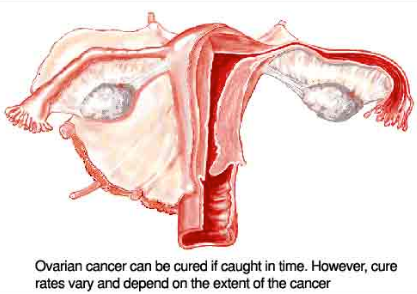Ovarian Tumor Removal in Portugal
Search and Compare the Best Clinics and Doctors at the Lowest Prices for Ovarian Tumor Removal in Portugal

Find the best clinics for Ovarian Tumor Removal in Portugal
No clinics available
Ukraine offers the best prices Worldwide
Price: $ 714

- Home
- Portugal
WHY US?
At Medijump, we're making medical easy. You can search, compare, discuss, and book your medical all in one place. We open the door to the best medical providers worldwide, saving you time and energy along the way, and it's all for FREE, no hidden fees, and no price markups guaranteed. So what are you waiting for?

Free

Best Price

Widest Selection

Risk-Free
What you need to know about Ovarian Tumor Removal in Portugal

Ovarian tumors are usually benign (non-cancerous), but if left untreated they may develop into Ovarian Cancer. If you have an ovarian tumor that grows and causes painful symptoms, you may need to undergo ovarian tumor removal, which is a surgical procedure to remove the tumor and sometimes the affected ovary or the surrounding tissue as well.
What does a Ovarian Tumor Removal Procedure Involve?
Ovarian tumor removal can be carried out with laparoscopy or laparotomy depending on the size of the tumor, both are done under general anesthetic. Your surgeon may only remove the tumor and leave the rest of the ovary intact or remove the entire ovary and fallopian tube. If the tumor is malignant (cancerous), your surgeon may remove part or all of the abnormal growth (ovarian tumor debulking).
How Long Should I Stay in Portugal for a Ovarian Tumor Removal Procedure?
You will need to stay in the hospital for 3 to 7 days after the surgery, but you should plan to stay in Portugal for 14 days. During your stay, you will attend follow-up hospital checkups where your surgeon monitors your condition and your surgeon will also remove the stitches.
What's the Recovery Time for Ovarian Tumor Removal Procedures in Portugal?
You may be able to go back to work within 4 weeks, but it is advisable to wait around 6 weeks to get back to your normal activities. During your recovery period, avoid intense exercises, heavy lifting, and sexual intercourse.
What sort of Aftercare is Required for Ovarian Tumor Removal Procedures in Portugal?
After the surgery, your surgeon will give you instructions regarding your diet, exercise, and wound care. You may need to meet your local doctor regularly so they can make sure your tumor and/or cancer has not come back. It is also advisable to see a therapist or counselor to talk to about emotional changes that ovarian tumor removal can cause.
What's the Success Rate of Ovarian Tumor Removal Procedures in Portugal?
Ovarian tumor removal has a high success rate of about 90%. However, just like any surgery, there are always side effects and risks that come with this type of surgery, including infection, bleeding and damage to nearby organs (such as the ureters and bladder). If both of your ovaries are removed, the side effect is menopause, infertility, dry vagina, hot flashes, night sweats, fatigue, and mood shifts.
Are there Alternatives to Ovarian Tumor Removal Procedures in Portugal?
In some cases, if your tumor is benign, you may need no treatment. Instead, your doctor may use “watchful waiting” to ensure the tumor does not cause any problems. If your tumor is malignant, your alternative is systemic therapies, such as hormone therapy, chemotherapy, and targeted therapy.
What Should You Expect Before and After the Procedure
Ovarian tumors can cause painful symptoms and cancerous. After ovarian tumor removal, you should not feel any of these symptoms anymore and you no longer will have a tumor in your ovary. Also, the chance of cancer spreading to other parts of your body is reduced and your fertility is usually preserved after treatment.
Whilst the information presented here has been accurately sourced and verified by a medical professional for its accuracy, it is still advised to consult with your doctor before pursuing a medical treatment at one of the listed medical providers
No Time?
Tell us what you're looking for and we'll reachout to the top clinics all at once
Enquire Now

Popular Procedures in Portugal
Prices Start From $260

Prices Start From $714

Prices Start From $714

Recommended Medical Centers in Portugal for procedures similar to Ovarian Tumor Removal

- Interpreter services
- Translation service
- Religious facilities
- Medical records transfer
- Medical travel insurance
- Health insurance coordination
- TV in the room
- Safe in the room
- Phone in the room
- Private rooms for patients available

- Interpreter services
- Translation service
- Religious facilities
- Medical records transfer
- Medical travel insurance
- Health insurance coordination
- TV in the room
- Safe in the room
- Phone in the room
- Private rooms for patients available

- Interpreter services
- Translation service
- Religious facilities
- Medical records transfer
- Medical travel insurance
- Health insurance coordination
- TV in the room
- Safe in the room
- Phone in the room
- Private rooms for patients available

- Interpreter services
- Translation service
- Religious facilities
- Medical records transfer
- Medical travel insurance
- Health insurance coordination
- TV in the room
- Safe in the room
- Phone in the room
- Private rooms for patients available

- Interpreter services
- Translation service
- Religious facilities
- Medical records transfer
- Medical travel insurance
- Health insurance coordination
- TV in the room
- Safe in the room
- Phone in the room
- Private rooms for patients available

- Interpreter services
- Translation service
- Religious facilities
- Medical records transfer
- Medical travel insurance
- Health insurance coordination
- TV in the room
- Safe in the room
- Phone in the room
- Private rooms for patients available

- Interpreter services
- Translation service
- Religious facilities
- Medical records transfer
- Medical travel insurance
- Health insurance coordination
- TV in the room
- Safe in the room
- Phone in the room
- Private rooms for patients available

- Interpreter services
- Translation service
- Religious facilities
- Medical records transfer
- Medical travel insurance
- Health insurance coordination
- TV in the room
- Safe in the room
- Phone in the room
- Private rooms for patients available
Ovarian Tumor Removal in and around Portugal
Introduction
Portugal is a country located in southwestern Europe. It’s one of the oldest nation-states of Europe and the world. Its territory had been continuously invaded, settled, and fought over since prehistoric times. Today, the country has become a major tourist destination, with its architecturally stunning cities, cobblestone villages, medieval castles, great food, stunning beaches, and incredible weather. Besides its beauty, Portugal is also attracting people from all around the world for its healthcare. The country offers a combination of state-of-the-art private medical centers, with spotless facilities and private rooms, a wide range of procedures, with very short waiting lists, as well as highly trained patient-oriented medical teams who are fluent in different languages. The physicians in this country have been trained by high standard medical schools, where just top and talented students are allowed to attend.
Popular Cities and Regions in Portugal
Lisbon is the capital and the largest city in Portugal. This city is filled with friendly people, history, mystique, and amazing food. Explore its many beautiful churches, listen to Fado, take a trip to the Castle of St. Jorge, see Sintra, and have some fun in one of its nightclubs. Another popular destination is Batalha, which is home to the UNESCO-listed Batalha Monastery. The monastery was build from 1386 to 1517 and is known as the greatest Gothic masterpieces in Europe. Those who want to party or soak up the sun should visit Lagos, while those who love to wander around and visit museums should visit Porto. Both of these cities are popular and fascinating.
Transport in Portugal
International tourists usually arrive at Lisbon Airport. It is a hub for low-cost airlines EasyJet and Ryanair, and it serves flights to numerous cities around the world. To get around Portugal, trains and buses are very efficient. While trains are often cheaper, buses are usually quicker. Taxis are available in almost every city and are relatively cheap.
Visas in Portugal
Since Portugal is part of the Schengen Area, citizens of 62 countries, including the US, Australia, the UAE, and Canada, are allowed to visit without a visa for up to 90 days. Citizens of most other countries are required to obtain a Schengen visa to visit the country.
Weather in Portugal
From March to May it is spring and the weather is pleasant but there will likely be some heavy rain. Summer, is from June to mid-September, can be scorching hot with temperatures rising to mid 30oC. Autumn, starts from mid-September to December and it brings colder temperatures but and an increased chance of rain. Winter can get quite cold and the days are shorter and always expect rain and storms during this season.
Additional Info
- Local Currency: The euro is the official currency. 1 EUR is equivalent to 1.08 USD.
- Money & Payments: ATMs are widely available, except in small villages. Credit cards are often accepted at midrange and high-end establishments. Tipping is usually expected at hotels and restaurants.
- Local Language: The official language is Portuguese. However, English, French, and Spanish are widely spoken in the country.
- Local Culture and Religion: Christianity is the major religion of the country. Other religions are practiced by a small portion of the population.
- Public Holidays: Portugal Day, Restoration of Independence, and Christmas Day are some of the public holidays celebrated in Portugal.
Popular Searches
- Plastic Surgery in Thailand
- Dental Implants in Thailand
- Hair Transplant in Thailand
- Breast Augmentation Thailand
- Gastric Sleeve in Thailand
- Gender Reassignment Surgery in Thailand
- Laser Hair Removal in Bangkok
- Botox in Bangkok
- Dermatology in Bangkok
- Breast Augmentation in Bangkok
- Coolsculpting in Bangkok
- Veneers in Turkey
- Hair Transplant in Turkey
- Rhinoplasty in Turkey
- Stem Cell Therapy in Mexico
- Rhinoplasty in Mexico
- Liposuction in Mexico
- Coolsculpting in Tijuana
- Rhinoplasty in Korea
- Scar Removal in Korea
- Gastric Sleeve in Turkey
- Bone Marrow Transplant in India
- Invisalign in Malaysia
- Plastic Surgery in the Dominican Republic
- Tummy Tuck in the Dominican Republic
- Plastic and Cosmetic Surgery in Poland
- Rhinoplasty in Poland
- Hair Implant in Poland
- Dental Implants in Poland
- IVF in Turkey